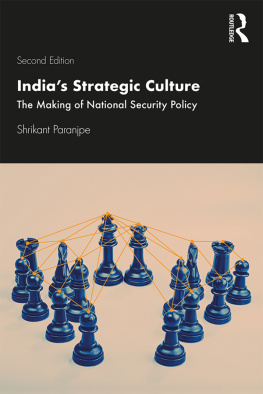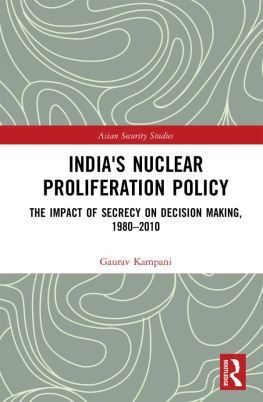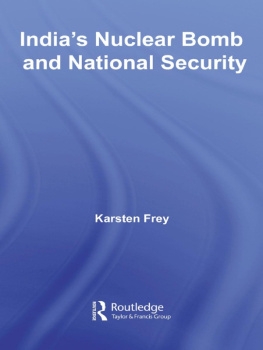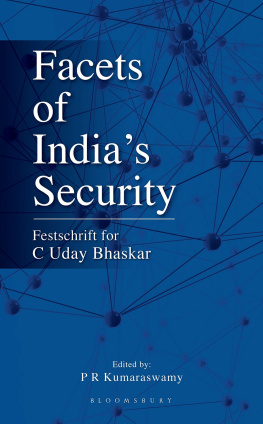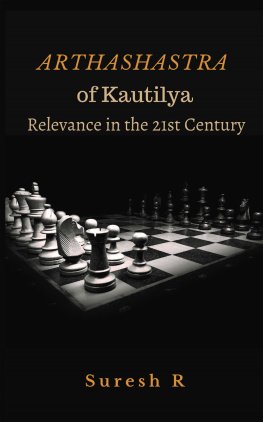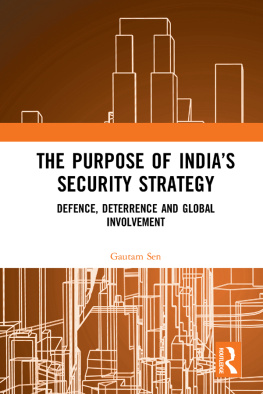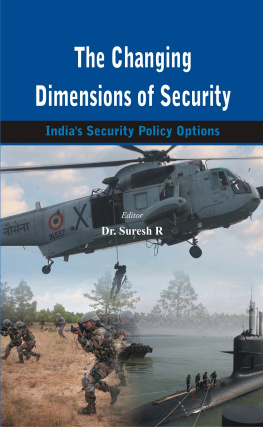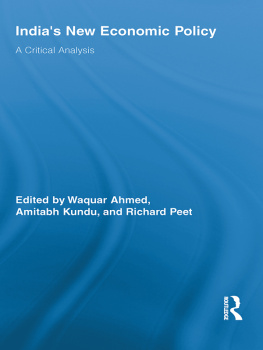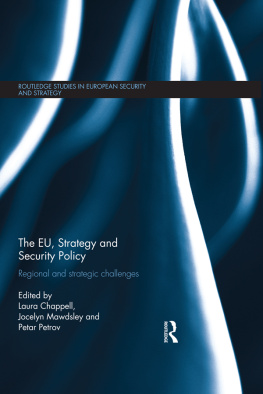INDIAS STRATEGIC CULTURE
This book provides a comprehensive understanding of the evolution of Indias strategic culture in the era of globalization. It examines dominant themes that have governed Indias foreign and security policy and events which have shaped Indias role in global politics.
The author
- Examines the traditional and new approaches to diplomacy and the states response to internal and external conflicts;
- Delineates policy pillars which are required to protect the states strategic interests and forge new relationships in the current geopolitical climate;
- Compares the domestic and international security policies followed during the tenures of Narsimha Rao, Atal Bihari Vajpayee and Manmohan Singh; and
- Analyzes how the Narendra Modi era has brought on changes in Indias security strategy and the use of soft power and diplomacy.
With extensive additions, drawing on recent developments, this edition of the book will be a key text for scholars, teachers and students of defence and strategic studies, international relations, history, political science and South Asian studies.
Shrikant Paranjpe is Honorary Adjunct Professor at the Department of Defence and Strategic Studies, Savitribai Pule Pune University (Formerly, University of Pune). He is also a Research Fellow, Centre for Military Studies, Faculty of Military Science, Stellenbosch University, South Africa. He was a Jawaharlal Nehru National Fellow (ICSSR) and Professor in the Department of Defence and Strategic Studies, and Director, Yashwantrao Chavan National Centre of International Security and Defence Analysis (YCNISDA), SPPU. He was a Fulbright Fellow (Postdoctoral, Research) at the George Washington University, Washington, D.C., and a Visiting Professor at Colorado College, Colorado Springs. His publications include India and South Asia since 1971 (1985); US Non-proliferation Policy in Action: South Asia (1987); Parliament and the Making of Indian Foreign Policy: A Study of Nuclear Policy (1997) and Internal Security and Role of the State: Managing Conflicts in India (2019).
Second edition published 2020
by Routledge
2 Park Square, Milton Park, Abingdon, Oxon, OX14 4RN
and by Routledge
52 Vanderbilt Avenue, New York, NY 10017
Routledge is an imprint of the Taylor & Francis Group, an informa business
2020 Shrikant Paranjpe
The right of Shrikant Paranjpe to be identified as author of this work has been asserted by them in accordance with sections 77 and 78 of the Copyright, Designs and Patents Act 1988.
All rights reserved. No part of this book may be reprinted or reproduced or utilised in any form or by any electronic, mechanical, or other means, now known or hereafter invented, including photocopying and recording, or in any information storage or retrieval system, without permission in writing from the publishers.
Trademark notice: Product or corporate names may be trademarks or registered trademarks, and are used only for identification and explanation without intent to infringe.
First edition published by Routledge 2016
British Library Cataloguing-in-Publication Data
A catalogue record for this book is available from the British Library
Library of Congress Cataloging-in-Publication Data
A catalog record for this book has been requested
ISBN: 978-0-367-25104-8 (hbk)
ISBN: 978-0-367-25759-0 (pbk)
ISBN: 978-1-003-03016-4 (ebk)
Typeset in Bembo
by Apex CoVantage, LLC
This study is an attempt to put forth a survey of Indian strategic thinking as it has evolved over the years and of the shape that it has taken in the post-Soviet world order. The study begins with the recognition that Indian strategic thinking is a product of historical, cultural, geopolitical, socio-economic compulsions and that it is marked by a perspective that is rooted in a mindset that can best be described as civilizational. Its roots may be traced in the understanding and the interpretation of India as a civilization-state that has a continuous history that goes back three to four thousand years. Indian strategic thinking has helped in defining its role in the postcolonial world order: it has sought to maintain its strategic autonomy in the Cold War era, keeping in mind Indias developmental needs. The Indian policy framework is rooted in the approach to development economic, political and social. This framework assumes/demands a possibility of change in the existing order, and it takes a revisionist perspective.

